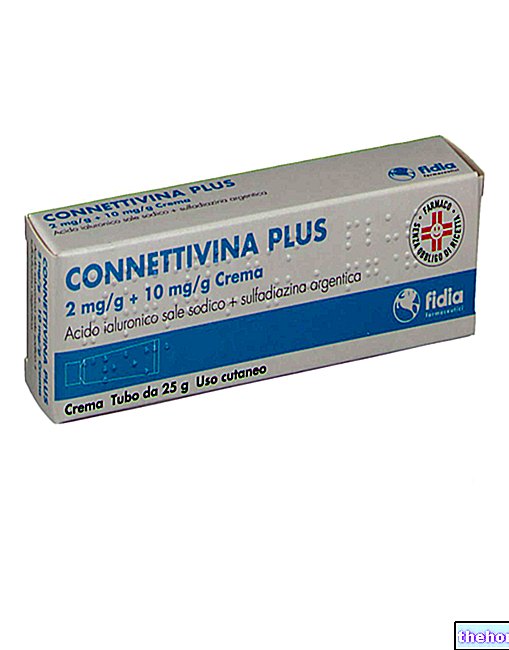ZOMETA ® is a drug based on anhydrous zoledronic acid
THERAPEUTIC GROUP: Drugs affecting bone metabolism - Bisphosphonates

Indications ZOMETA ® - Zoledronic acid
ZOMETA® is indicated in the treatment of neoplastic hypercalcemia and bone fractures associated with bone metastases.
Mechanism of action ZOMETA ® - Zoledronic acid
Bisphosphonates, a pharmaceutical category to which zoledronic acid belongs, have been used for some time in the treatment of bone pathologies with the aim of preventing fractures that are most frequently observed in pathological conditions such as osteoporosis or bone metastases.
Although the precise mechanism of action is not yet clear, these drugs seem to concentrate mainly in the bone, and more precisely in the areas of active resorption, selectively inhibiting the osteoclastic differentiation and bone resorption processes, without affecting the osteodeponent activity in any way. of osteoblasts.
The aforementioned biological mechanism therefore guarantees a modulation of bone metabolism, favoring remineralization and at the same time lowering blood calcium concentrations.
Furthermore, recent studies, albeit still in the experimental phase, show how zoledronic acid can also have a modest antitumor activity, inhibiting the local proliferation of neoplastic cells.
Studies carried out and clinical efficacy
1. ZOLEDRONIC ACID AND RISK OF VERTEBRAL FRACTURES
J Bone Miner Res. 2011 Dec 8.
The effect of 3 versus 6 years of zoledronic acid treatment of osteoporosis: a randomized extension to the HORIZON-Pivotal Fracture Trial (PFT).
Black DM, Reid IR, Boonen S, Bucci-Rechtweg C, Cauley JA, Cosman F, Cummings SR, Hue TF, Lippuner K, Lakatos P, Leung PC, Man Z, Martinez R, Tan M, Ruzycky ME, Su G, Eastell R.
Long-standing clinical trial demonstrating how patients at high risk of vertebral fractures can benefit significantly from uninterrupted intake of zoledronic acid.
2. ZOLEDRONIC ACID AND BONE MESTASIS
Cancer. 2011 Dec 2. doi: 10.1002 / cncr.26512.
Retrospective analysis of antitumor effects of zoledronic acid in breast cancer patients with bone-only metastases.
Niikura N, Liu J, Hayashi N, Palla SL, Tokuda Y, Hortobagyi GN, Ueno NT, Theriault RL.
Work that disproves the various studies in the literature relating to the efficacy of zoledronic acid in reducing tumor progression in patients with bone metastases from breast cancer.
3. ZOLEDRONIC ACID AND PROSTATIC CARCINOMA
Hinyokika Kiyo. 2011 Jun; 57: 331-5.
A case of prostate cancer with disseminated carcinomatosis of bone marrow which responded to Zoledronic acid.
Kato K, Nagahama K, Yagibashi Y, Yamamoto M, Kanamaru H, Hirata H.
Japanese study that demonstrates how treatment with zoledronic acid in patients with bone metastases from prostate cancer can significantly reduce both bone pain and blood PSA concentrations, improving the patient's quality of life.
Method of use and dosage
ZOMETA ®
Powder and solvent for solution for infusion, 4 mg vial of zoledronic acid:
the need to administer ZOMETA ® intravenously and the high degree of specialization of this advanced therapy of bone disorders associated with tumor pathologies, requires the supervision of a specialist doctor and hospitalization during treatment.
Dosages and timing of intake will be decided by the doctor based on the clinical picture of the patient.
Warnings ZOMETA ® - Zoledronic acid
Administration of zoledronic acid should take place under close medical supervision and in a hospital setting.
Periodic monitoring of electrolyte concentrations and renal function is necessary in order to avoid the appearance of imbalances and decompensations so serious as to seriously compromise the patient's state of health.
The aforementioned monitoring should also extend to heart and liver function in order to avoid unpleasant side effects.
In patients not suffering from hypercalcemia, the concomitant supplementation with Vitamin D and Calcium could prove useful in safeguarding the blood concentrations of this element and avoiding the onset of pathological conditions such as tetany or paraesthesia.
Treatment with bisphosphonates, especially when prolonged over time, could be associated with the increased risk of osteonecrosis of the jaw, thus becoming a potentially dangerous condition for any dental treatment.
PREGNANCY AND BREASTFEEDING
The absence of clinical trials and studies able to demonstrate the safety of taking zoledronic acid during pregnancy for fetal health, allows to extend the contraindications also to the period of pregnancy and breastfeeding.
Interactions
The concomitant administration of zoledronic acid and other anticancer or analgesic drugs does not seem to determine the appearance of clinically relevant side effects or significant pharmacokinetic changes.
Particular attention should instead be paid following the possible simultaneous intake of drugs active on bone metabolism and responsible for hypocalcemia.
Contraindications ZOMETA ® - Zoledronic acid
ZOMETA ® is contraindicated in case of pregnancy, lactation and hypersensitivity to the active substance or to one of its excipients.
Undesirable Effects - Side Effects
Intravenous administration of zoledronic acid could be responsible for: anemia, headache, visual disturbances, conjunctivitis, nausea, vomiting, weight loss, bone pain, arthralgia, myalgia, decreased kidney function, fever and flu-like symptoms, hypophosphataemia, hypocalcemia, hypercrateninaemia and pancytopenia.
Like the other bisphosphonates, the intake of zoledronic acid can also be responsible for osteonecrosis of the jaw and jaw.
Note
ZOMETA ® can only be used in a hospital environment.
The information on ZOMETA ® - Zoledronic acid published on this page may be out of date or incomplete. For a correct use of this information, see the Disclaimer and useful information page.























-nelle-carni-di-maiale.jpg)




